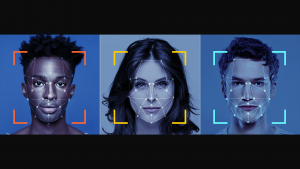We all know the internet is vast. Indeed, it’s a veritable universe of information – an exciting frontier open to all. Or at least that’s what we’re led to believe. In reality, though, our access to this digital cosmos is closely monitored, our every click subtly guided. We think we’re surveying the heavens, but, more often than not, we’re never able to see much farther than our own backyard.
How did our view become so limited? Well, internet giants like Google, Facebook and YouTube have created an individualized web for us. By using personalization and filters, such companies ensure that we never get the full picture – that we’re always confined to our own digital bubble.
It’s not unusual to feel overwhelmed by the seeming infiniteness of the internet. After all, there is a mind-boggling amount of data out there.
Here are some numbers that’ll give you a sense of what’s going on: Over the course of a typical day,
900,000 blog posts are created,
50 million tweets are sent,
60 million updates are logged on Facebook and
210 billion (that’s right, billion!) emails are sent.
And this is just the tip of the internet iceberg.
If that’s still difficult to comprehend, here’s another way of looking at it. As the former CEO of Google, Eric Schmidt, puts it: To record and store the two thousand years of human communication prior to 2003, one would need five billion gigabytes of space. Yet this amount of storage would only hold two days of communication in 2011.
Companies such as Google, Facebook, Yahoo and Amazon – started offering personalized filters that uniquely match results with a person’s individual tastes and preferences. With these filters in place, scrolling through the data becomes less overwhelming and finding and identifying relevant information is a whole lot simpler and faster.
Imagine if Netflix, Amazon or iTunes offered no personalization features. You’d have to scroll through hundreds of thousands of titles, categorized alphabetically or by genre alone, making it the type of daunting task that you’d be loath to undertake at all.
So, obviously, personalization has some major advantages. But there’s also a dark side that involves an ongoing battle for individual information.
The distressing problem with the personalization of the internet is this: relevant results rely on personal information – the more personal the better. This means that corporations like Google are out to learn everything about you.
Google’s founders, Larry Page and Sergey Brin, want to provide people with the best, most tailored search results, which means using “smart” algorithms than don’t rely on keywords alone. An important part of Google’s algorithms are links. A site is considered more relevant when other sites link to it. And if these “relevant” sites link to other sites, those sites will also be considered more important, and so on. Want to know more about this? Read my other blog about: SEO
But to provide accurate and personalized results, Google needs as much data as it can get its hands on.
So the company stores and monitors each and every datum. After every Google search, they track which results the user is offered as well as the “click signals” – that is, which websites the user ended up clicking through to.
Google’s ability to collect information received a significant boost in 2004, when they began offering personal services such as Gmail, services that require the user to log in. This provided Google with even more detailed knowledge about people’s personal preferences, because it could now cross-reference personal data, such as age and location, in combination with each person’s usual link-clicking behavior.
With this new info in hand, Google’s algorithms became more refined and its search engine results provided more personalized and tailored results.
View this post on InstagramA post shared by Pinchaaqui.es (@pinchaaqui.es) on
Both Google and Facebook are leading the way in collecting our personal data.
It’s believed that for approximately 96 percent of all US households, Google has an average of 1,500 pieces of information. This information could range from the names of your relatives and friends to whether you are left- or right-handed.
Facebook also continues to collect vast amounts of personal and detailed information, such as who you date, where you go to eat, where you work and the things you “like.” All the information that is freely deposited on news feeds is ultimately added to Facebook’s growing treasure trove of data.
If you are on Facebook, you’re probably familiar with the upsetting experience of being tagged in an embarrassing photo that was taken during one of your less-than-shining moments. In these cases, the best you can do is untag the photo, cross your fingers and hope that it never resurfaces.
But face recognition technology is on the rise right alongside personalization, and it will only add to the difficulty of protecting your privacy.
As uneasy as it might make you feel, it is possible that anyone with a computer will one day be able to search the internet for a face just as easily as they can search for a name. Once face recognition becomes mainstream, there’s little hope of protecting your privacy. You can say no to photos and do all the untagging you want, but your face can still pop up in a search, even if you were just walking along and got caught in the background of someone else’s selfie.

For companies and advertisers, your location is just one more important piece of data, and in some places face recognition is already transforming the ads in public spaces. The idea of walking along and watching as all the ads on billboards target you might sound more suited to some dystopian science fiction movie, but, in Japan, this is already a reality.
There’s a very special, and very personalized, billboard already being used in Tokyo. As you walk past it, it scans your face, looking for a match in its database of 10,000 pictures. As soon as it determines your gender and age, it’ll show ads tailored to that specific group.
Indeed, we’re already living in a brave new world, and while there might be things that aren’t in our control, we should, at the very least, remember that the filter bubble is there – and try to step outside it whenever we can. Or maybe it’s something we need to face…. What do you think?
Love, Marietta


